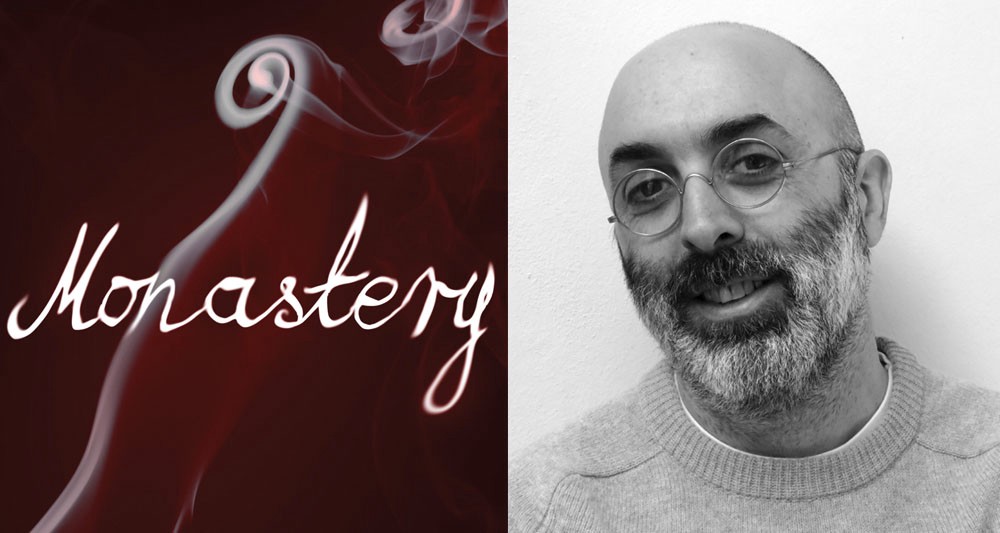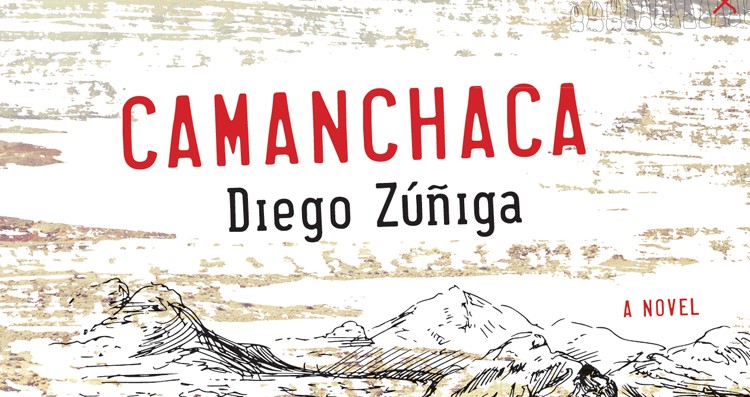interviews
We Become the Mask That We Wear: An Interview with Eduardo Halfon

“Oh Ghetto My Love” is featured in Electric Literature’s Recommended Reading with an introduction from Dwyer Murphy. Eduardo Halfon’s books Monastery and The Polish Boxer are available from Bellevue Literary Press.
Julia Johanne Tolo: I read in an interview you did with Dwyer Murphy in Guernica a few years ago, that writing in Spanish, instead of English, wasn’t a choice for you, that Spanish was the natural language to write in. Yet you have said that you think in English, and then write your thoughts down in Spanish. How do you experience seeing your words translated back into English?
Eduardo Halfon: When I’m writing, the words in my mind begin in English, and somewhere between my head and the page they turn into Spanish. It’s a very bizarre writing process, I know. And not one that I dwell upon too much or even pretend to understand. I do know that I have two languages, that I am straddling two languages. One foot in Spanish, my mother tongue; another foot in English, my step-mother tongue. It’s not that I go back and forth, but that I’m inside both or that both are inside me at the same time, and everything I write, then, is really a product of both. As if I’d developed my own private language, regardless of the language of the words on the page.
JJT: One of my favorite aspects of “Oh Ghetto My Love” is the rhythm of the language. Is that something that you think is close to the feel of the Spanish?
EH: I think every language has its own rhythm, its own particular music. And that — and not the words themselves — is perhaps the hardest part of the translation process. How do you translate the music of words from one language to another? In the English translations of my stories, I’m able to work closely with the translator. And I’ve found that most of my suggestions and edits concern the sound of the words, their cadence and rhythm. Not because I’m capricious, or not only because I’m capricious. But because the rhythm of the words is essential in creating an emotional response in the reader. The words to a song can be beautiful by themselves, but the emotions we experience while listening to that song are unattainable without its music. Same in literature. And this is something I’m very conscious of while writing: the rhythm and tempo of the words and sentences. When I was young, I wanted to be a professional piano player. I would have settled for weddings and bar-mitzvahs. Never made it.
JJT: You’ve given your narrator your own name and details or characters from your own life are similar to those in your stories, such as your grandfather and your trip to Poland. What do you think can be gained from/enjoyed most about playing with genres and the borders between the real and the imagined in this way?
EH: Fiction isn’t interested in facts, but in truth. The facts of my life — my name, my birthplace and family, my grandfather, my beard — are only the starting point of a trail that leads the reader somewhere else, somewhere deeper and more mysterious and magical, somewhere even I, while writing, didn’t expect to go. Fiction, like music, resonates at an emotional level, through which we can arrive at an emotional or poetic truth. To an ecstatic truth, as Werner Herzog called it. In literature, we use facts to create on the page the illusion of life, and once there, the imagined becomes real, and water becomes wine.
JJT: How does traveling inspire you? What kind of places do you like to travel to, and what do you seek from travel?
EH: I feel as if I’ve been traveling my entire life. We left Guatemala when I was ten, and I’ve been shuffling along ever since. But I’ve never felt at home anywhere. Never felt rooted to any city or country. I suppose I was educated that way, brought up in the permanent diaspora that was my childhood. But now, every time I arrive for the first time in a new city, I arrive with the hope that that city will be where I finally want to stay, raise some kids, hang a hammock, get a black lab. I find myself yearning for a piece of land somewhere, or at least for the nostalgia of land somewhere. But I’ve never found it. Never felt it. Perhaps that’s why I travel so much, both in life and in fiction. Since I don’t have a city of my own, I write as if the entire world was my back yard.
JJT: In “Oh Ghetto My Love” as well as in your story “Signor Hoffman,” (which I believe can be read in BOMB Magazine in December) the name Hoffman is recurring: in one story the narrator chooses it for himself and in the other it is mistakenly given to him. How does this play on names connect to the themes of travel, identity, and the past that are present in these stories?
EH: I find that there’s something profoundly significant in the identity bestowed upon us by our name. I’m Halfon. I’m born with the weight of that name — of that word — on my shoulders. That’s who I am. That’s my identity, my family’s identity, our history. Yet, Halfon isn’t our original name. It was longer. But an immigration officer at Ellis Island decided to chop it in half, when my great-grandfather arrived there from Lebanon at the beginning of the last century. So my name — my identity — is also arbitrary, haphazard, created in a fraction of a second by the whim of some lazy or stubborn immigration officer. I’m fascinated by this. How something so permanent and profound as our name can also be so ephemeral. Like Hoffman in the two stories you mention. Like all last names. At some point in the past, all of our last names were created or decided by the whim of someone, but over time they become our identity. We all eventually become the mask that we wear.
***
Eduardo Halfon was born in Guatemala City, moved to the United States at the age of ten, went to school in South Florida, studied Industrial Engineering at North Carolina State University, and then returned to Guatemala to teach literature for eight years at Universidad Francisco Marroquín. Named one of the best young Latin American writers by the Hay Festival of Bogotá, he is also the recipient of a Guggenheim Fellowship and the prestigious José María de Pereda Prize for the Short Novel. He has published eleven previous books of fiction in Spanish. The Polish Boxer, his first book to appear in English, was a New York Times Editors’ Choice selection and finalist for the International Latino Book Award. Halfon is currently the Harman Writer in Residence at Baruch College in New York and travels frequently between his homes in Nebraska and Guatemala.









